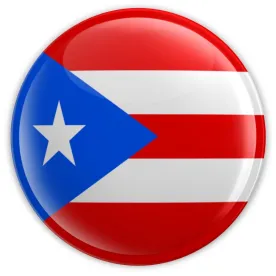The days may be numbered for Puerto Rico’s 2017 employment reform law. Legislators in the House of Representatives have approved a bill that would repeal or modify parts of the current law.
Shortly after being sworn in, members of the House introduced House Bill 3 (HB 3) to repeal the Labor Transformation and Flexibility Act of 2017, commonly referred to as the Employment Law Reform. The 2017 act brought sweeping changes to Puerto Rico employment laws. After four months and substantial amendments, HB 3 was approved by the House on May 1. HB 3 now goes before the Senate.
The Senate also will be considering House Bill 152 (HB 152), a bill to provide employment protections to medical marijuana users.
Scaling Back 2017 Employment Reform
Legislators initially introduced HB 3 as a full repeal of the 2017 Employment Law Reform. Looking to compromise and approve a version that may withstand the governor’s veto power, HB 3 was amended to repeal or modify only some of the changes enacted in 2017. HB 3 also added vacation and sick leave entitlement to part-time employees, which did not exist before the Employment Law Reform.
Key changes proposed by HB 3 include:
-
Repealing provisions that require consistent interpretation between federal and local laws that regulate the same matter.
-
Reinstating the 24-hour rule for purposes of determining daily overtime. That is, employees would be entitled to daily overtime if they work more than 8 hours in any 24-hour rolling period, as opposed to 8 hours in a calendar day.
-
Eliminating the irrebuttable presumption of independent contractor status if certain requirements are met.
-
Increasing the accrual of paid vacation and sick leave to 1.25 day for each month in which an eligible employee works at least 115 hours (15 days per year), regardless of hire date.
-
Adding prorated accrual of 0.5 day of paid vacation leave and 0.5 day of paid sick leave for eligible employees who work more than 20 hours per week but less than 115 hours in a month.
-
Reverting the probationary period to 3 months and again requiring written notice of the probationary period, instead of the current automatic probationary period of 12 months for “white collar” employees and 9 months for all other employees.
-
Reverting the hours-worked threshold for the Christmas bonus to 700 hours for all employees, regardless of hire date. Currently, employees hired on or after January 26, 2017, must meet a threshold of 1,350 hours between October 1 and September 30.
-
Eliminating the cap on the remedy for unjust dismissal provided by Law 80-1976 and establishing a severance for employees with 1 to 15 years of service in the amount of 3 months plus 2 weeks of salary per each full year of service, and for employees with more than 15 years of service in the amount of 6 months plus 3 weeks of salary per each full year of service.
-
Reverting meal period commencement to no earlier than the third hour of work, as opposed to the second hour of work.
-
Reinstating the 3-year statute of limitations for wage and hour claims and unjust dismissal claims and increasing the statute of limitations for employment-related claims, including discrimination and breach of contract, from 1 year to 3 years.
-
Increasing the minimum meal periods for security guards, croupiers, and nurses from 20 to 30 minutes.
-
Adding a double-time premium for any employee who is a student and works on a seventh consecutive day within the established workweek.
-
Reincorporating the presumption of unjust dismissal on all employment terminations and the presumption that a termination is also discriminatory if there is no just cause for termination.
-
Amending the definition of constructive discharge and the examples of just cause for termination provided in Law 80.






 />i
/>i

